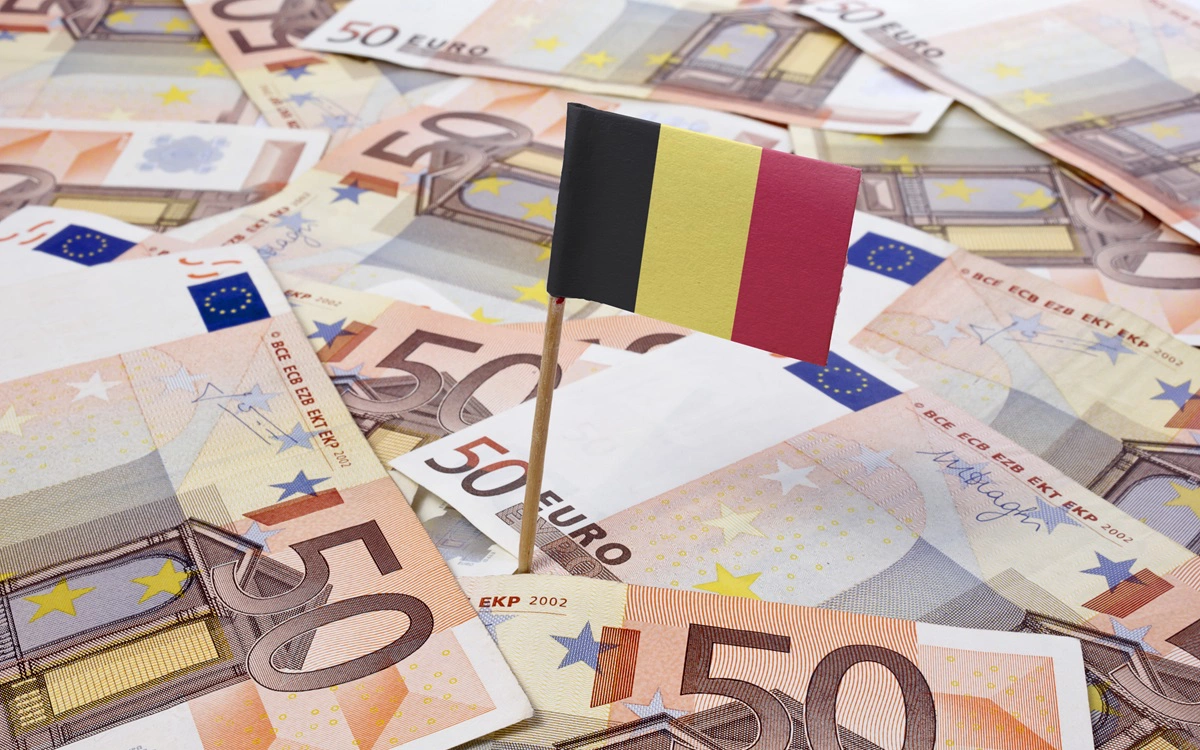RBC Investments sent a request to the Belgian Ministry of Finance about whether it will facilitate or hinder the exchange of blocked assets. The department responded that Russian decrees are not valid for him

(Photo: Shutterstock)
The European Union for the first time commented on its attitude to President Vladimir Putin’s Decree No. 844 of November 8, 2023, which regulates the exchange of blocked assets between Russians and foreigners. As follows from the response received by RBC Investments from the press service of the Belgian Ministry of Finance, this document is not valid in the EU.
“Only European financial sanctions regulations have the force of law and are directly applicable in the European Union. “Russian decrees do not lead to the emergence of any European obligations,” the Belgian regulator said.
The bulk of the Russians’ assets are blocked in the Euroclear depository, the regulatory body for which is the Belgian Ministry of Finance.
RBC Investments sent a request to the broker Investment Chamber, who was previously appointed as the organizer of the exchange.
Lawyer, NSP partner Aram Grigoryan believes that the answer from the Belgian Ministry of Finance does not directly say whether it will issue permits to foreign investors to unblock the purchased securities or not. “The main problem that foreign investors will face after the buyout is the need to move securities blocked in European depositories. The mere purchase of such paper does not automatically change its status to unlocked and free to move,” he adds.
The Belgian Ministry of Finance is the responsible authority for sanctions issues within the jurisdiction of this country, so the position of the regulator will be binding for Euroclear, notes Grigoryan. “In fact, the Belgian Ministry of Finance independently interprets sanctions regulations and makes decisions on the approval of these regulations,” says the lawyer.
He also recalled that the department must follow the official position of the Council of the EU on matters of compliance with European sanctions and, quite possibly, that has already held such consultations with a higher authority.
Clearstream announced a boycott of the exchange of blocked assetsClearstream,Unlocking,Banking and finance,Shares,Eurobonds,NRD
Earlier, the Luxembourg depository Clearstream published a message noting that it would not assist in the implementation of a number of Russian decrees aimed at unlocking frozen assets. This list also includes Presidential Decree No. 844, which regulates the purchase of foreign securities of Russians by non-residents using funds that have accumulated in their type C accounts (dividends on shares, as well as coupons and redemptions on bonds).
“Clearstream Banking is consulting with legal counsel and relevant authorities to better understand the potential impact of the above-mentioned Russian measures and to establish all possible regimes to protect the assets of its clients and minimize the risk of any loss and/or misuse,” the message said.
Then a representative of the Investment Chamber broker told Vedomosti that Clearstream’s decision would not affect the buyout procedure. According to him, permission to transfer securities to a foreign depository is issued by the local regulator. Therefore, non-residents who purchase securities in Russia will have to apply there.
The demand of foreigners for the exchange of assets exceeded the supply of Russians Unblocking,Investments,Banks and finance,Shares
On March 25, the process of exchanging blocked assets began. From this day on, the broker “Investment Chamber” and other professional participants began accepting applications for participation from investors—individuals. The application deadline expires on May 8, and for some brokers even earlier.
Russian investors, according to the decree, can put up for sale their blocked foreign securities, in the chain of custody of which was the National Settlement Depository (NSD, part of the Moscow Exchange group). Non-resident buyers will be able to pay for them with money from type C accounts. The exchange will affect portfolios worth no more than ₽100 thousand, as well as assets from larger portfolios, but within the same ₽100 thousand.
General Director of the broker “Investment Chamber” Alexey Sedushkin, on the air of the “Index of the Week” program on RBC TV, reported the increased interest of foreign investors in the asset exchange procedure. “Even from what we hear verbally from potential buyers, the volume [of demand] is very high. It is definitely more than the amount that our sellers can bring. Again, this is our subjective assessment of what ours can bring for sale,” he noted.
Previously, Sedushkin stated that the broker is negotiating with several dozen foreign institutional investors who own ruble assets in type C accounts. Among potential buyers of assets, he named banks and funds from the US, EU and UK. According to him, non-residents could potentially exchange assets worth tens of billions of rubles. According to Sedushkin’s estimates, in the period from May to December 2023 alone, non-residents could have accumulated dividends on Russian shares worth ₽450 billion.
The head of the Investment Chamber also admitted that after this procedure is completed, the broker may turn to the authorities with a proposal to conduct a new wave of exchange, but according to the asset-to-asset scheme (Russian securities blocked in EU depositories, in exchange for non-resident securities blocked on the Moscow Exchange).
Later on RBC TV, Deputy Minister of Finance Ivan Chebeskov said that this option was being considered by the department, but there are a number of difficulties for it, both technical and political. “We generally considered this option. We need to see how the first stage goes, and then talk about some next steps. We are generally constructive in this regard,” he noted.
